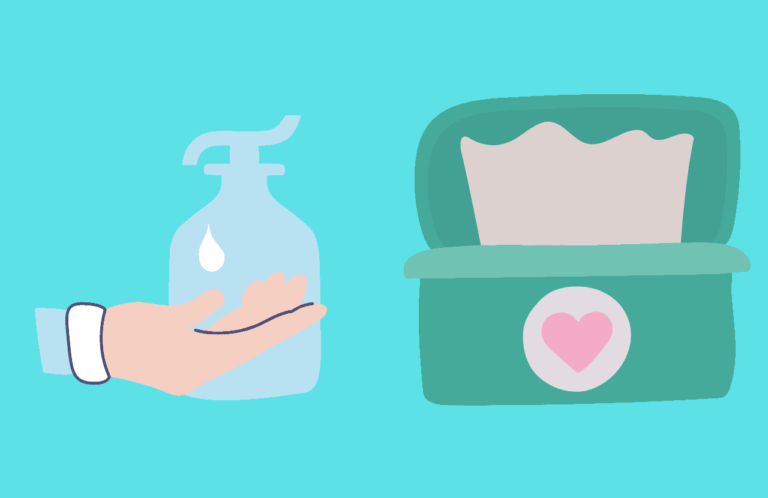Helping Autistic Baby Enjoy Tummy Time
If you have an autistic baby who hates tummy time, you are not alone. Many parents of autistic infants face challenges when it comes to engaging their little ones in this important developmental activity. However, tummy time is crucial for their growth and overall development. In this article, we will explore strategies to help your autistic baby enjoy tummy time and support their sensory and motor development.
Skip To The Following Sections
- The Importance of Tummy Time for Autistic Babies
- Overcoming Challenges with Tummy Time for Autistic Babies
- Strategies to Encourage Tummy Time for Autistic Babies
- Play-Based Interventions for Autistic Babies during Tummy Time
- Incorporating Tummy Time into Daily Routine for Autistic Babies
- Modifying Tummy Time for Autistic Babies
- Celebrating Milestones and Progress in Tummy Time for Autistic Babies
- FAQ
- Why is tummy time important for autistic babies?
- What challenges do autistic babies face during tummy time?
- How can I encourage tummy time for my autistic baby?
- What are some play-based interventions for autistic babies during tummy time?
- How can I incorporate tummy time into my autistic baby’s daily routine?
- How can tummy time be modified for autistic babies?
- How can I celebrate milestones and progress in tummy time for my autistic baby?
- Source Links
Key Takeaways:
- Autistic babies may have sensory challenges that make tummy time difficult for them.
- Tummy time is important for developing motor skills, body awareness, and coordination in autistic babies.
- Creating a sensory-friendly environment and using familiar objects can help overcome challenges during tummy time.
- Gradually introducing tummy time and using appropriate props and activities can encourage your baby to enjoy this activity.
- Play-based interventions and incorporating tummy time into a daily routine can make the experience more enjoyable for autistic babies.
The Importance of Tummy Time for Autistic Babies
Tummy time is crucial for the development of all babies, including those with autism. It offers a range of benefits that promote physical, sensory, and social development. Engaging in regular tummy time activities can help improve motor skills and overall well-being for children with autism.
One of the main advantages of tummy time is its ability to strengthen neck muscles. By spending time on their stomach, babies with autism can gradually build up the muscles needed to support their head and neck. This is an essential milestone in their development and contributes to improved posture and coordination in everyday activities.
Furthermore, tummy time aids in the development of motor skills. As babies reach and push up against the floor, they engage their muscles and practice important movements that lay the groundwork for sitting, crawling, and eventually walking. This not only enhances their physical abilities but also boosts their confidence and independence.
In addition to physical benefits, tummy time provides valuable sensory input for autistic infants. It helps them develop body awareness, proprioception, and balance. By experiencing different textures and sensations against their skin, they can improve sensory processing and regulation. This, in turn, can help reduce sensory sensitivities and support their overall sensory development.
Engaging in tummy time activities also offers opportunities for social interaction and communication. By being on their stomach, babies have a different perspective of their environment and can better interact with caregivers and peers. This interaction enhances their social engagement, communication skills, and emotional connections.
Improving Motor Skills through Tummy Time for Autistic Infants
“Tummy time provides infants with autism the chance to develop their motor skills through a range of movements and activities.”
Overall, tummy time plays a crucial role in the development of autistic babies. It promotes physical strength, motor skills, sensory processing, and social engagement. Incorporating tummy time into their daily routine can have long-lasting benefits and support their overall growth and development in a fun and engaging way.
Overcoming Challenges with Tummy Time for Autistic Babies
During tummy time, autistic babies may encounter sensory challenges that can make it difficult for them to engage in this important activity. Sensitivities to touch, textures, and certain movements can affect their comfort and willingness to participate.
To help autistic babies overcome these challenges, it is crucial to create a sensory-friendly environment. Gradually introducing tummy time and making adjustments based on their unique needs can make a significant difference in their experience.
One strategy is to modify the environment to minimize sensory overload. You can try dimming the lights, reducing background noise, and using a soft mat or blanket. These adjustments can create a calm and inviting space for tummy time.
Sensory tools can also play a vital role in managing tummy time struggles. Consider providing your baby with toys or objects that have varying textures, contrasting colors, or different sounds. These sensory stimuli can help them focus and engage during tummy time.
Incorporating familiar objects into tummy time can be beneficial as well. Their favorite toy or a cherished blanket can provide a sense of familiarity and security, making them more comfortable and willing to explore the activity.
“Creating a sensory-friendly environment and gradually introducing tummy time can help autistic babies overcome challenges and explore the benefits of this essential activity.”
Remember, each autistic baby is unique, so it may take some trial and error to find the right strategies that work for them. Pay attention to their cues and adjust your approach accordingly.
By addressing sensory challenges, you can help your baby navigate tummy time more comfortably, supporting their motor development and overall well-being.
Strategies to Encourage Tummy Time for Autistic Babies

Encouraging tummy time for autistic infants can be a beneficial activity for their development and growth. Here are some effective strategies to make tummy time a more engaging and enjoyable experience for your baby:
- Start with short sessions: Begin with short tummy time sessions, gradually increasing the duration as your baby becomes more comfortable. This gradual approach helps them build tolerance and familiarity with the activity.
- Use sensory-friendly props and toys: Incorporate sensory-friendly props and toys that capture your baby’s interest. Soft textures, sensory balls, or engaging toys can make tummy time more enjoyable and stimulating for them.
- Incorporate activities they enjoy: To make tummy time more engaging, incorporate activities that your baby enjoys. For example, play their favorite songs or introduce bubbles for them to interact with during tummy time sessions.
- Adjust positioning and support: Ensure your baby’s comfort and safety by adjusting their positioning and providing appropriate support during tummy time. Use pillows or rolled-up towels to prop them up and maintain a comfortable posture.
These strategies aim to create a sensory-friendly and enjoyable tummy time experience for your autistic baby. By gradually building tolerance, incorporating stimulating props and activities, and ensuring their comfort, you can support their development while making tummy time a positive and engaging activity.
Play-Based Interventions for Autistic Babies during Tummy Time
When it comes to engaging your autistic baby during tummy time, play-based interventions can be highly effective. By incorporating interactive and stimulating activities, you can not only make tummy time enjoyable but also promote various developmental skills. Here are some sensory-friendly tummy time activities that can help improve motor skills and engage your baby’s senses:
- Toy Exploration: Choose toys that spark your baby’s interest and encourage reaching, grasping, and exploration. Opt for toys with different textures, colors, and sounds to engage their senses and promote sensory development. Encourage them to explore the toy while on their tummy, fostering their motor skills and hand-eye coordination.
- Interactive Games: Incorporate interactive games and songs into tummy time to enhance joint attention and social engagement. Sing nursery rhymes, play peek-a-boo, or imitate animal sounds to capture your baby’s attention and create a fun and interactive environment.
- Mirror Play: Place a baby-safe mirror in front of your little one during tummy time. As they begin to lift their head and explore their surroundings, the mirror will provide visual stimulation and foster self-awareness. This activity can also encourage reaching and pointing movements.
- Physical Stimulation: Provide opportunities for your baby to practice motor skills within the context of tummy time. Gently roll them from side to side, encouraging them to push up on their arms and initiate crawling movements. These physical interactions can support their motor development and strengthen their muscles.
Remember to always supervise your baby during tummy time and ensure that the activities are appropriate for their age and developmental stage. By incorporating these play-based interventions, you can make tummy time an enjoyable and beneficial experience for both you and your baby.
Expert Insight:
“Play-based interventions during tummy time can positively influence a baby’s sensory and motor development. By providing a stimulating and engaging environment, we promote curiosity, exploration, and the acquisition of new skills.” – Dr. Sarah Thompson, Pediatric Developmental Specialist
Incorporating Tummy Time into Daily Routine for Autistic Babies

Making tummy time a regular part of your autistic baby’s daily routine is essential for their development and growth. By incorporating tummy time into their daily activities, you can promote their motor skills, sensory integration, and overall well-being.
Start by finding a time when your baby is most alert and receptive to engaging in tummy time activities. This could be after a diaper change, before naptime, or when they have had a good rest. Creating a calm and comfortable environment will make tummy time more enjoyable for your little one.
Begin with short tummy time sessions and gradually increase the duration as your baby becomes more comfortable. Remember to be patient and supportive throughout the process, as it may take time for your baby to adjust to this new position. By maintaining a consistent routine, you can help your baby become more relaxed and at ease during tummy time.
Integrate tummy time into daily activities by making it a natural part of your baby’s day. By associating it with routine tasks, such as after a diaper change or before naptime, you help your baby understand that tummy time is an expected and regular activity.
Encourage interaction and bonding during tummy time by joining your baby on the floor. Get down to their level, make eye contact, and engage them with gentle touch and soothing sounds. This will create a positive and nurturing experience for both of you.
Remember, every baby is unique, and what works for one may not work for another. Be observant of your baby’s cues and adapt the tummy time routine to suit their individual needs. Listen to their comfort levels and adjust accordingly, providing support when needed.
Incorporating tummy time into your autistic baby’s daily routine can have long-lasting benefits for their development. It promotes motor skills, sensory integration, and enhances body awareness. By making tummy time enjoyable and consistent, you are laying a strong foundation for their overall growth and well-being.
Remember, always consult with your pediatrician or healthcare provider for personalized advice and guidance on incorporating tummy time into your autistic baby’s routine.
Modifying Tummy Time for Autistic Babies
Modifying tummy time activities can be beneficial for managing tummy time struggles and encouraging tummy time for autistic infants. By adjusting the environment and incorporating supportive aids, you can create a more comfortable and sensory-friendly experience. Tailoring the activities to target your baby’s individual goals and strengths can further enhance their engagement and progress.
Adjust the Environment
Creating a sensory-friendly environment is crucial for autistic babies during tummy time. Minimize sensory overload by reducing excessive noise, bright lights, or strong odors. Ensure the space is calm, quiet, and free from distractions. By optimizing the environment, you can help your baby focus on the tummy time activity and reduce any discomfort or anxiety they may experience.
Use Supportive Aids
Incorporating supportive aids, such as pillows or blankets, can provide additional comfort and stability for your baby during tummy time. These aids can help alleviate any physical discomfort, such as neck strain, and promote better engagement. Ensure that the aids used are safe and age-appropriate, providing the necessary support without compromising your baby’s safety.
Focus on Individual Goals and Strengths
Every autistic baby is unique, and it’s important to tailor tummy time activities to their individual goals and strengths. For example, if reaching or visual tracking is an area of focus, you can incorporate toys or objects that encourage these skills. By aligning the activities with your baby’s strengths, you can foster a sense of achievement and motivation during tummy time.
Remember, modifying tummy time for autistic babies is all about creating a supportive and individualized experience. By adjusting the environment, using supportive aids, and focusing on their goals and strengths, you can help them overcome challenges and make tummy time a more enjoyable and beneficial activity.
Celebrating Milestones and Progress in Tummy Time for Autistic Babies
Celebrate each milestone and progress your autistic baby makes in tummy time. It’s important to recognize their efforts and offer praise and encouragement. Tummy time plays a significant role in improving motor skills for autistic infants, and every small step forward is a valuable accomplishment towards their overall development.
Documenting your baby’s achievements in tummy time can be beneficial in tracking their progress. Keep a record of their milestones, such as lifting their head or rolling over, and share these successes with their healthcare providers. The documented progress will provide valuable insights and help guide the interventions and support needed to continue improving their motor skills through tummy time.
Remember, consistency and patience are key. With continued support and intervention, your autistic baby can reach their full potential in tummy time. Celebrate their accomplishments, whether big or small, and acknowledge the effort they put into each tummy time session. By fostering a positive and encouraging environment, you can create a foundation for their success and contribute to their overall development.
FAQ
Why is tummy time important for autistic babies?
Tummy time helps strengthen neck muscles, develop motor skills, and prevent flat head syndrome. It also provides sensory input and promotes body awareness, balance, and coordination. Engaging in tummy time activities can improve communication skills and social engagement for autistic babies.
What challenges do autistic babies face during tummy time?
Autistic babies may experience sensory challenges during tummy time, such as sensitivity to touch, textures, and certain movements. These challenges can make it difficult for them to engage in this activity.
How can I encourage tummy time for my autistic baby?
Start with short tummy time sessions and gradually increase the duration as they become more comfortable. Use sensory-friendly props and toys to engage their interest. Incorporate activities they enjoy, such as listening to music or playing with bubbles. Adjust the positioning and support to ensure their comfort and safety during tummy time.
What are some play-based interventions for autistic babies during tummy time?
Use toys that spark their interest and encourage reaching, grasping, and exploration. Incorporate interactive games and songs to promote joint attention and social engagement. Provide opportunities for them to practice motor skills, such as rolling or crawling, within the context of tummy time.
How can I incorporate tummy time into my autistic baby’s daily routine?
Find a time when they are most alert and receptive to engaging in tummy time activities. Start with short sessions and gradually increase the duration. Integrate tummy time into daily activities, such as after diaper changes or before naptime.
How can tummy time be modified for autistic babies?
Adjust the environment to minimize sensory overload or discomfort. Use supportive aids, such as pillows or blankets, to provide additional comfort and stability. Focus on activities that target their individual goals and strengths. Tailor tummy time experiences to suit the unique needs of each autistic baby.
How can I celebrate milestones and progress in tummy time for my autistic baby?
Recognize their efforts and offer praise and encouragement. Document their achievements to track their development and share their successes with healthcare providers. Every small step forward is a significant accomplishment, and with continued support and intervention, they can reach their full potential in tummy time and overall development.
Source Links
- https://www.lumierechild.com/lumiere-childrens-therapy/tag/physical therapy for children
- https://www.parents.com/baby/health/autism/early-autism-intervention-activities-for-babies/
- https://www.momfidence.com/single-post/tummy-time










